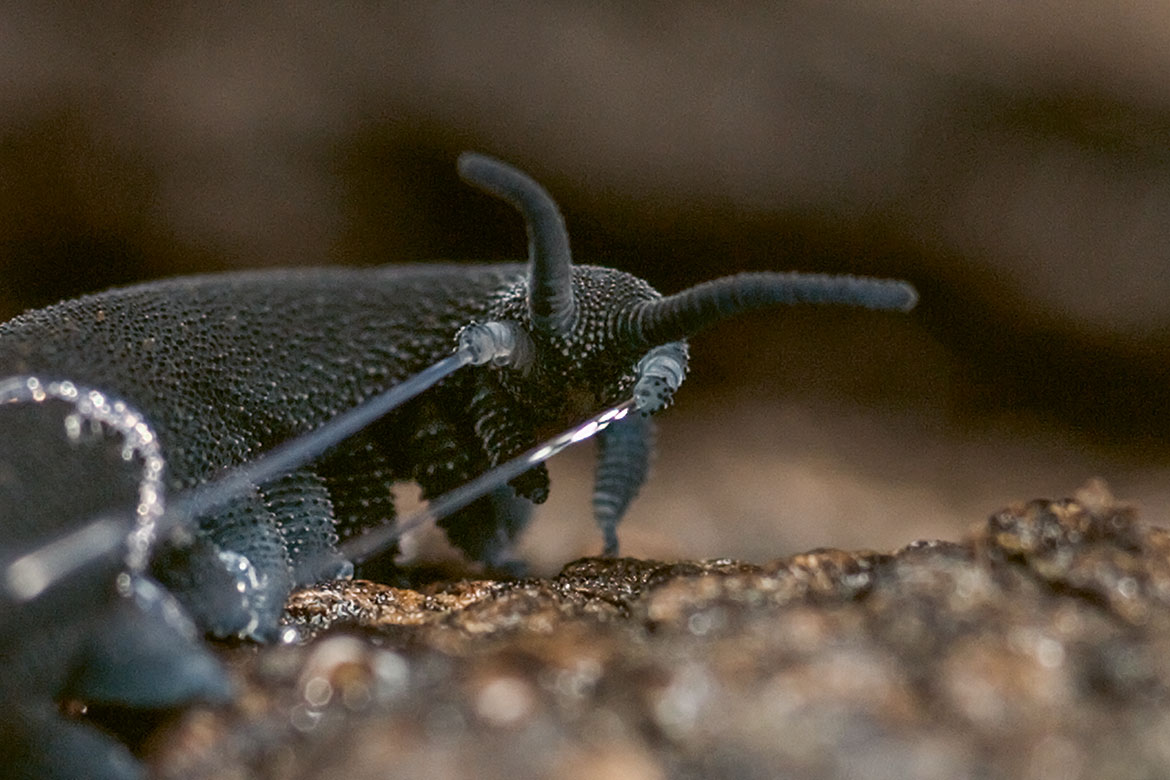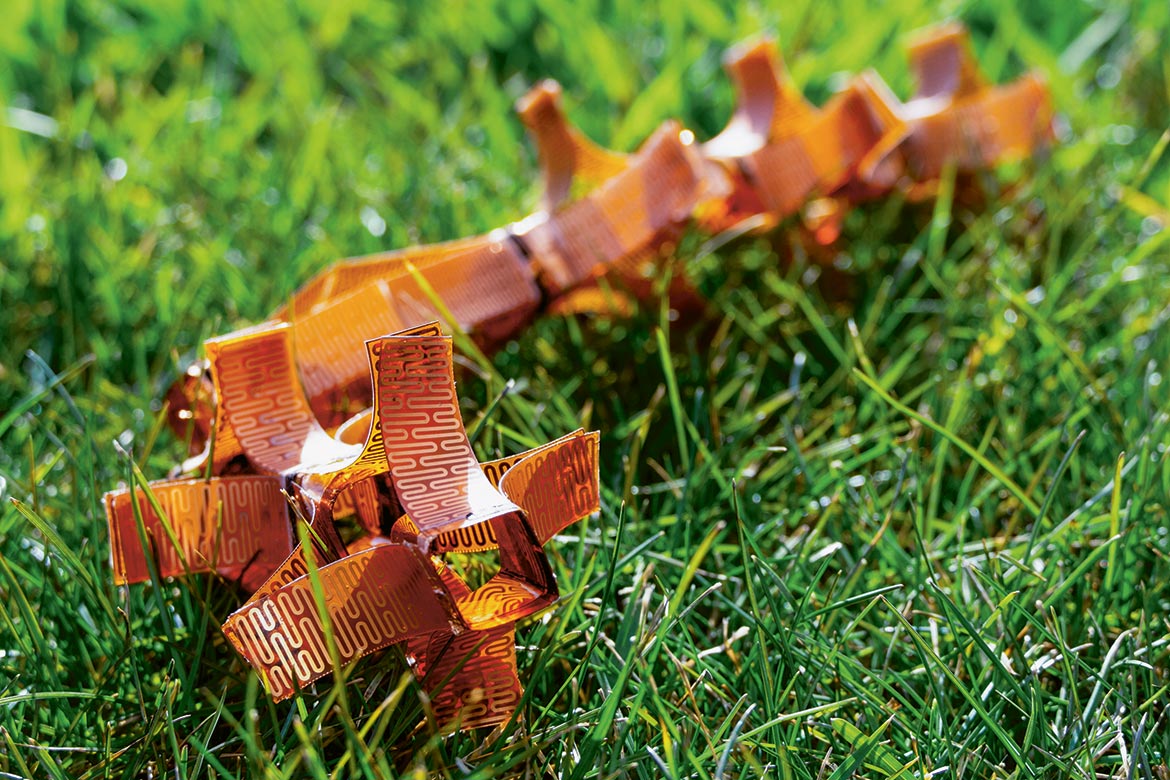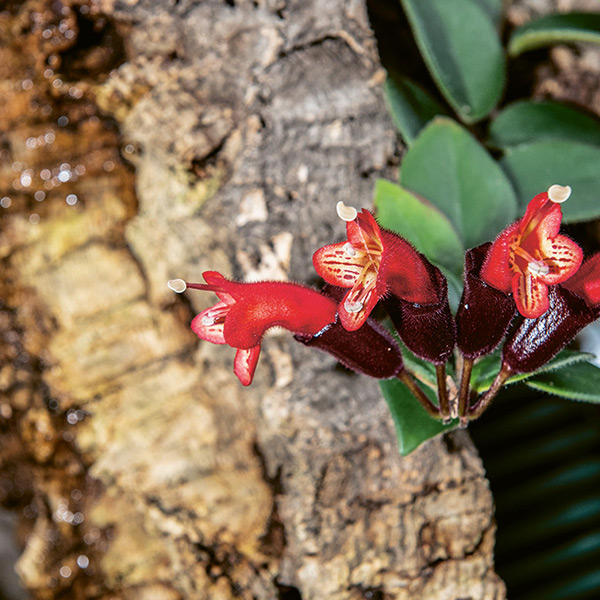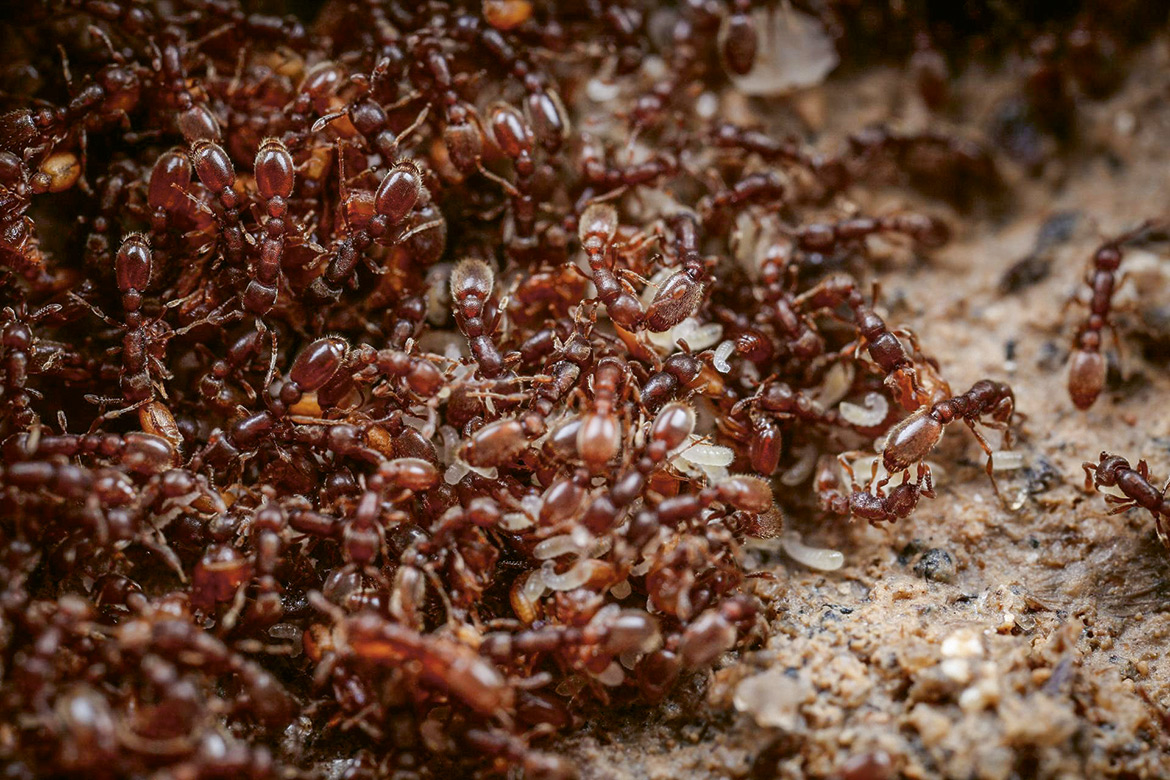The worms that turn a lake
Sticklebacks with parasites lose their appetite. This has an impact on a whole lake, right down to the tiniest algae.
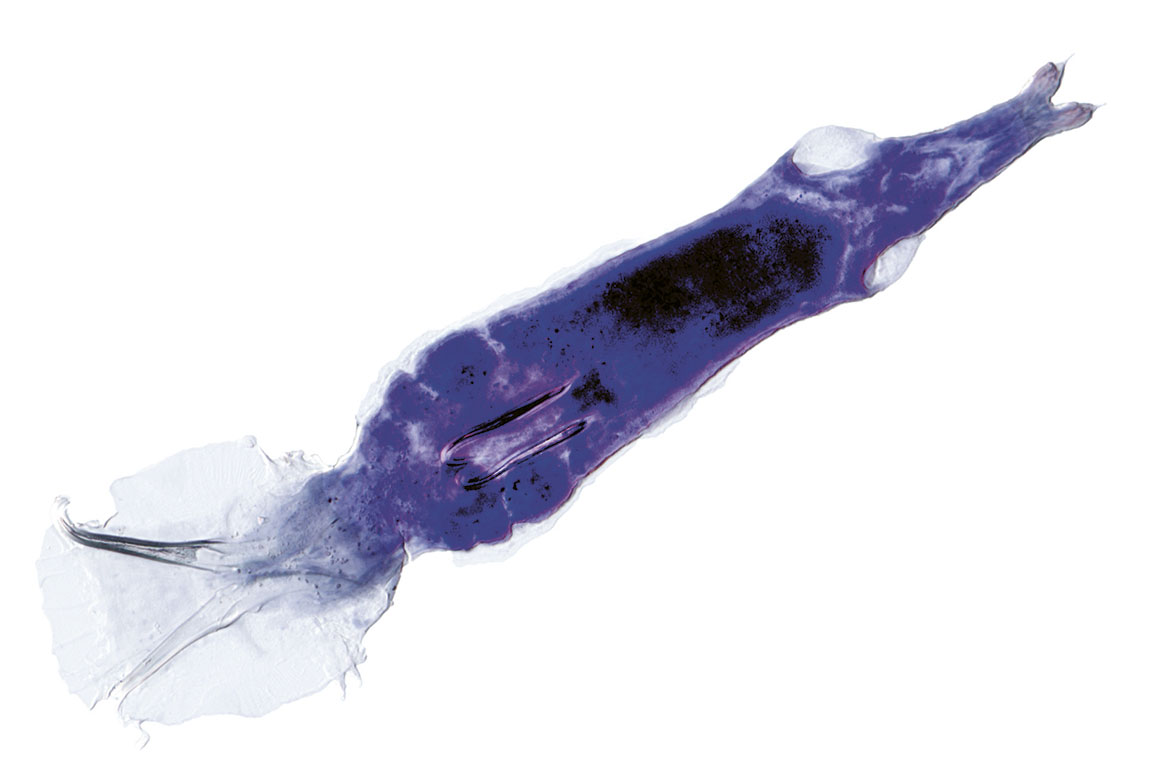
The flatworm Gyrodactylus infects the gills of sticklebacks. Length: 0.5 mm. | Image: Daniel J. Drew/Wikimedia Commons
Parasites don’t just have an impact on their hosts – they can also destabilise entire food chains. This has now been proven by a large-scale study run by researchers from the Swiss Federal Institute of Aquatic Science and Technology (Eawag) in collaboration with colleagues from the USA, Great Britain and Portugal. Their test subjects were sticklebacks – a small fish widespread in the northern hemisphere. They kept the fish for a month in large (1m³) water tanks. The fish in 20 tanks had been treated with a deworming agent before the experiment and were thus largely free of parasites. In 20 other tanks, the fish had not been treated and were actually infected with parasites such as flatworms of the species Gyrodactylus, which feed off the gill slime of the sticklebacks. Five further tanks remained empty for control purposes.
The sticklebacks with the parasites ate fewer zooplankton (small crustaceans and insect larvae) than the healthy fish. That was hardly surprising. But because zooplankton feed off microscopic algae (phytoplankton), more zooplankton means fewer phytoplankton. So according to the models that the researchers have been calculating, this means that the parasites have an impact on the productivity of a whole lake ecosystem. The origins of the sticklebacks also play a role. The effect was more pronounced among fish from Lake Constance than among those from Lake Geneva. The reason for this might be differences in the behaviour of the predatory fish in each lake.
According to Blake Matthews, the last author of the study, their results do not offer any guidance on how to deal with the problem in practice. “But our results are still helping us to get a better understanding of the complex interactions that occur in a lake”.

